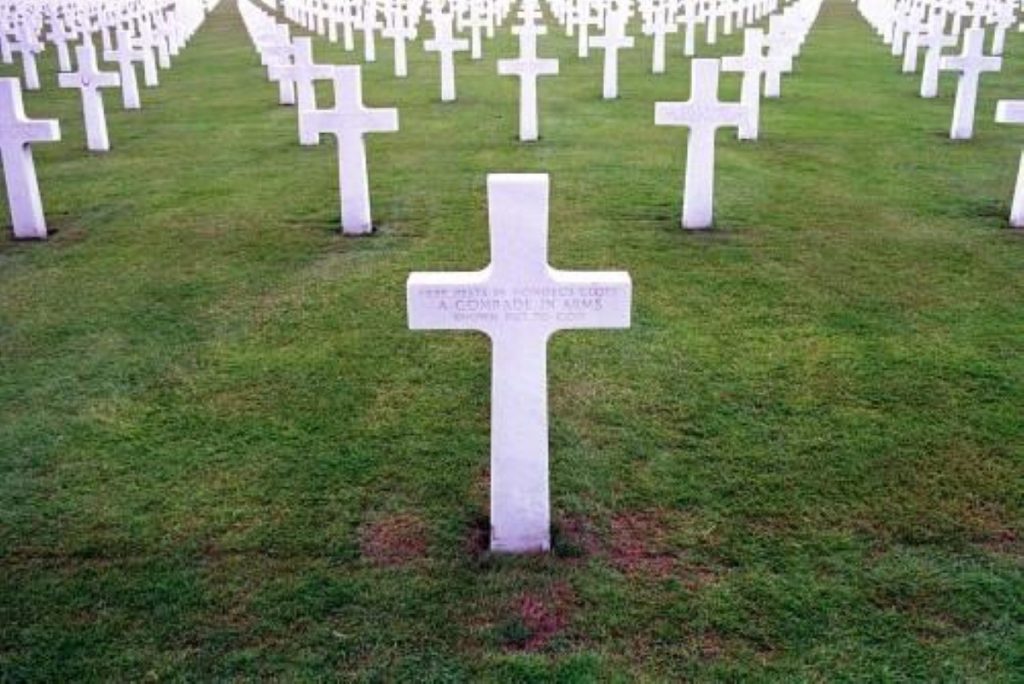Comment: Lefties and liberals still don’t do enough to stop wars
By Symon Hill
Those who speak of Britain's tradition of free speech conveniently overlook World War One. During this 'war for freedom', the Defence of the Realm Act banned publications and activities that could undermine army recruitment. People were imprisoned for such offences as displaying pacifist posters, encouraging people not to join the army and refusing to tell the authorities were anti-war publications were being printed.
It's not something that David Cameron or Nicky Morgan are likely to mention as they encourage us to mark the war's centenary. War was used as an excuse to restrict civil liberties in 1914, just as the fear of terrorism has been used to do so again and again since 2001. Indeed, the number of similarities between politics today and politics in the First World War is both amusing and alarming.
Foremost among them is the role of the arms trade – and the hypocrisies of politicians in relation to it (http://armingallsides.on-the-record.org.uk). MPs recently criticised David Cameron for licensing sales of military equipment to Russia. The Campaign Against Arms Trade (CAAT) points out that the UK is continuing to arm Israel despite the attacks on Gaza.
After war broke out in 1914, it was revealed that the Austro-Hungarian fleet was armed with torpedoes made by Whitehead's, a subsidiary business of the British arms company Vickers. Shareholders of Vickers included the under-secretary of state for war, the Speaker of the House of Commons and 25 peers. Vickers has since become part of BAE Systems.
For much of World War One, Britain was governed by a coalition in which the principles of Liberal MPs proved very susceptible to Conservative pressure. Herbert Asquith's Liberal government began the war firmly opposed to conscription, despite pressure from Tory MPs, the Daily Mail and the Times. The formation of a coalition in May 1915 brought pro-conscription Tories into the cabinet, but they were outnumbered by Liberals. Despite this, the National Service League – a pro-conscription lobby group – saw more and more of its policies accepted until finally in December 1915 the Cabinet agreed to introduce conscription (to be fair, the home secretary, John Simon, resigned in protest).
Then, as now, a few Liberal backbenchers spoke out against coalition policies. Indeed, when the coalition was formed, Liberals who refused to support it sat on the opposition benches as 'independent Liberals'. Perhaps their successors could learn something from this example.
The justifications offered for World War One sound familiar to anyone who watched Tony Blair promote the invasions of Iraq and Afghanistan. Asquith justified the UK's entry to the war by its citing Britain's duty to protect Belgium.

Only a few days before, the German government had offered to respect Belgian neutrality if Britain stayed out of the war. The British foreign secretary, Edward Grey, refused to agree. The British Empire had itself violated national sovereignty around the world. In our own century, the invasion of Afghanistan was justified on the grounds of democracy and women's rights – by ministers who were merrily selling arms to Saudi Arabia.
All mainstream politicians today are signed up to one form or another of austerity. None of them challenge the UK's massive military spending (the sixth highest in the world). Similarly, their predecessors a century ago were prepared to unite around war. The Labour party split, with the pro-war left arguing that Belgium must be defended (in Germany, the pro-war left said that Russian Tsarist autocracy must be resisted). More recently, British attacks on Afghanistan, Iraq and Libya have all shown that some on the left are surprisingly flexible in their commitment to peace. They are pacifists between wars, which is like being a vegetarian between meals.
Today, much of the media talk as if the Tory, Labour and Lib Dem parties represent the full spectrum of public opinion. In World War One, alternatives to war were routinely overlooked – so successfully that some historians still insist that nearly everyone supported the war. But the underground anti-war paper the Tribunal had 100,000 subscribers in 1916, while over 16,000 people refused to fight on grounds of conscience. More than 6,000 were sent to prison (http://www.whitefeatherdiaries.org).
Some similarities, however, are definitely welcome. British politics preserves its tradition of satire and ridicule. The Tribunal was full of ironic observations on politics and the war, while the absurdity of government decisions often made it easy for them. In 1916, at a trial of leading pacifists, the prosecutor, Archibald Bodkin argued: "War would become impossible if all men were to have the view that war was wrong!"
Delighted that the prosecutor had inadvertently echoed their own argument, the pacifists printed posters with Bodkin's quote on them. An activist displaying one of the posters was prosecuted. To add another layer of irony, it was Bodkin who was given the job of prosecuting him. The Tribunal insisted that it was Bodkin's patriotic duty to prosecute himself, and offered to raise funds to support his wife and children if he succeeded in sending himself to jail.
Thankfully, members of the British establishment have never lost their ability to make fools of themselves.
Symon Hill is a Christian writer and activist. His books include The No-Nonsense Guide to Religion and Digital Revolutions: Activism in the internet age, both published by New Internationalist
The opinions in Politics.co.uk's Comment and Analysis section are those of the author and are no reflection of the views of the website or its owners.





-01.png)